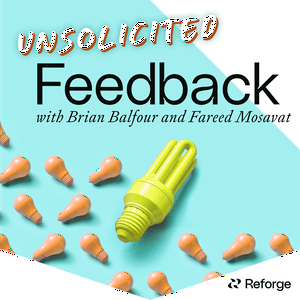In the span of two weeks, OpenAI launched an app platform with 800 million users, released Agent Kit with visual workflows and custom widgets, and dropped Sora—a social video app that instantly became the #1 and #2 app in the App Store. If you've been following our predictions about the next great distribution shift, this is the moment we've been waiting for. The "open" phase has officially begun.
In this episode, Brian Balfour (Founder and CEO of Reforge) is joined by Ravi Mehta (former CPO at Tinder, product leader at Meta and TripAdvisor) and Adam Fishman (former Interim VP Product at Mozilla, previously at Patreon and Lyft) to break down what these launches really mean for product leaders. We discuss why this could be the "uh-oh moment" for Google and Apple, how OpenAI is using memory and context to build their moat, and the specific tactical steps you should be taking right now—before your competitors do.
We also dive deep on Sora's surprising product design, why it feels more like Snapchat than TikTok, the dopamine mechanics of AI-generated content, and whether Meta is about to "Stories-ify" the whole thing.
Get Your Product Team AI-Native
This episode is brought to you by Reforge. Reforge provides the tools and training your team needs to become AI-native:
Reforge Insights aggregates your scattered customer feedback into actionable intelligence.
Reforge Research runs AI interviews and surveys so you can capture new insights at scale.
Reforge Build lets you prototype AI features for your existing product in minutes.
Reforge Launch gives you the feature management infrastructure you need for AI products.
Key Topics:
Why ChatGPT's app platform threatens Google Search and the iPhone home screen
The distribution shift playbook and what Phase One means for startups vs. incumbents
How to get early access and build on OpenAI's platform before it's too late
Sora's design choices, creator-product fit, and the unsustainable economics of AI video
Why there's no opting out of this wave—and how to catch it
This is the strategically most intense environment we've ever seen. Don't miss this one.


